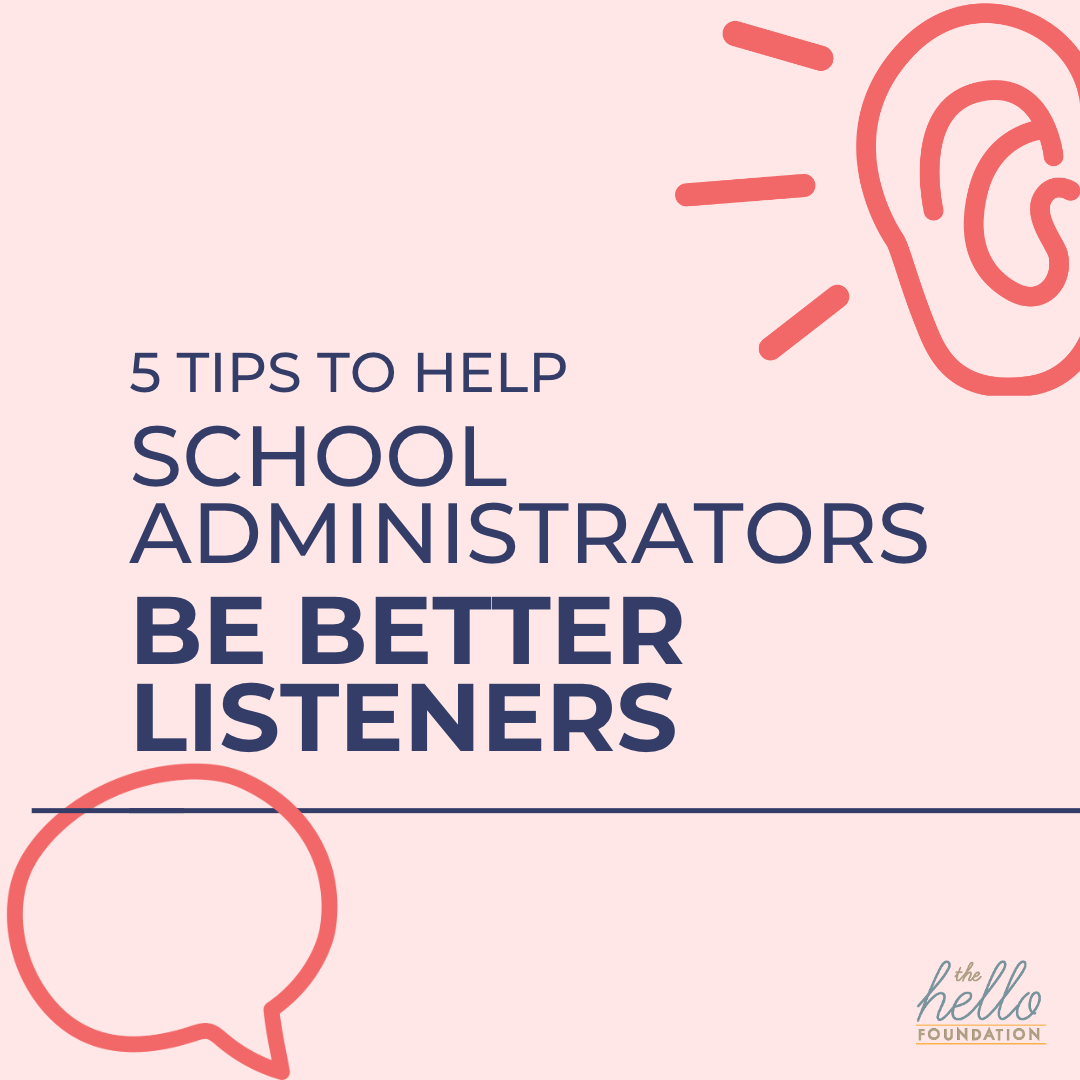When you think of the qualities that make an excellent special education administrator, chances are that organized, knowledgable, and experienced come to mind. These are undoubtedly important, but a critical attribute needs to be added to that list: good listener. Why? Consider the tremendous amount of time special education admins spend listening to staff and problem-solving issues that come up. My many years in Human Resources have taught me that focusing on becoming a better listener can make staff issues easier to address and sometimes even make them disappear altogether.
5 Tips To Help Special Education Administrators Be Better Listeners
If that sounds like an intriguing proposition to you, read on for my top 5 tips to help special education administrators be better listeners:
1. Establish contact first
This step happens before any issues arise but is vital in creating an environment where lines of communication are open and a person feels safe talking to you. Send quick, periodic emails to check in and offer to come by for a quick chat. An email as simple as, “Hey Judy, I was just looking at your numbers, and it sure looks like you’ve got a full plate this year! How are things going? Let me know if you’d like to talk about anything. Thanks for all you do!” can go a long way towards building a collaborative (vs. adversarial) relationship with your staff. Ideally, you’ll do this for each staff member at least twice a year. Set up a list where you keep track and a recurring reminder on your calendar or to-do list app to keep it front of mind.
2. Be fully present
When you find yourself in a meeting with an employee, do everything you can to give them all your attention for the time they’re with you. Being fully present might mean putting your computer to sleep and ignoring the buzz of your phone, but it also means being aware of body language cues and keeping your thoughts on the conversation at hand. Some people find that taking notes helps them stay focused, while others find it a distraction. What is most important is that your brain is devoted to the person in front of you and not to the grocery list!
3. Maintain an open mind
Commit to only forming opinions on the situation once you have heard everything the employee wants to share. This is hard work! But remember that your goal is to understand your employee’s point of view, which is quite tricky when you have already formed an opinion. Reminding yourself to focus on empathy and validation can be helpful.
4. Be (mostly) quiet
It may seem silly to say that better listening starts with less talking, but it bears repeating! No sentence finishing, no interrupting, and no bombarding the employee with questions. Use non-verbal communication and words like “yes” and “I see” to signal that you’re listening. Listen for what is implied as well as what is said. When there is a natural pause in the conversation, use reflective listening techniques such as paraphrasing (“What I hear you saying is . . .“) and mirroring (repeating what you’ve heard, word for word). If you are truly confused, ask questions such as “What do you mean when you say . . . ?” and “Can you tell me more about…?“
5. Offer ongoing support
When you both feel like you have a mutual understanding of the issue, ask your employees what they would like to happen next. Often, being heard is a solution in and of itself, and no other immediate action is needed. If this is the case, reassure your employees that you will check back in with them in a month to see how things are going, then set a reminder to do so on your calendar while you are both still sitting there. If the employee has other solutions, make an action plan with a timeline. Again, make sure you both write down what each of you will be doing, when you will do it, and how you will assess progress.
Being a better listener is a skill, just like any other skill — practice makes perfect! Keep at it, and know that creating a safe place for your employees to voice their concerns and develop solutions will improve your life and those of your employees. Everybody wins!
This post was originally published 9/26/14 and most recently updated 11/16/22






